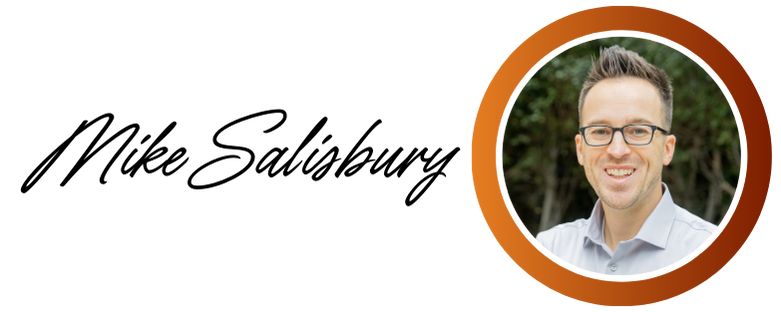How to Test Your Book Idea Before You Write It

What Every Author Misses About Market Research
As authors, we often trust our gut when it comes to book ideas, but smart writers test their instincts. They look for feedback, patterns, and proof of concept before investing months (or years) in writing.
To dig deeper into how authors can do that well, I reached out to Jeff James, Assistant Professor of Marketing at Eastern University’s College of Business and Leadership. Jeff brings decades of marketing experience-both as a practitioner and a professor-and he’s passionate about helping authors think like entrepreneurs.
He shared some brilliant, practical advice on how to test your ideas, stand out from the crowd, and shape a brand that lasts.
What are some best practices for testing new book ideas with an audience?
Jeff: First, it is important to determine at what level you need feedback. Are you seeking input on broad topics or general themes? If so, an open-ended qualitative approach would be ideal. Qualitative research, such as focus groups or one-on-one interviews (or even open-ended questions placed on your social media site), is great for capturing subjective reactions from potential readers. An author can then build an interactive relationship with the participant by asking drill-down questions to clarify the responses.
If your idea is well-developed, a quantitative approach is appropriate. Quantitative surveys offer fixed options to the reader to force them to make prioritized choices. Quant questions can be ratings-style, such as “How likely would you be to purchase this book” with a Likert-scale (i.e., 1 = very unlikely, 5 = very likely), or they can be comparative choices such as “Which of the following books would you most likely purchase?” What is great about comparative quant survey questions is that you can even test your book idea compared to existing titles in the market. Wouldn’t it be cool to test how your book idea compares to a bestseller? Even if you don’t have comp titles to test against, an author could create dummy titles (or descriptions, or book covers) to test against their preferred version.
The challenge with quantitative research is identifying enough qualified contacts who are relevant for your target audience. If you don’t have enough social media followers of your own, perhaps partnering with other authors or organizations within a similar topic area would expand your audience reach for the survey. Response rates, even among the most targeted audiences, can be very low. So most likely you will need a far bigger list or social media audience to generate enough responses to be reliable, which is typically at least 50+ and preferably 100+.
Remember that qualitative studies are typically 8-20 people and are never statistically trustworthy. However, they can provide valuable directional guidance that can later be validated with quantitative surveys that deliver a higher level of statistical confidence. Remember that qualitative and quantitative research work together. You typically start with qualitative approaches to gather ideas, then shape those into firm choice options for a quantitative study.
What’s one simple thing you wish every author would do but most overlook when it comes to their marketing and personal brand?
Jeff: Differentiation. As a marketing leader, and especially during my years as a marketing consultant, I have always been amazed at how difficult it is for an author or entrepreneur (and I believe an author IS an entrepreneur!) to boldly claim a significant difference in their offering compared to other options in the market. Once an author has defined their genre, I would recommend really studying what makes other authors unique. Then, start thinking deeply about your own distinctive characteristics in your writing and with your personal brand. If you can carve out a niche of readers who are more likely to respond to your uniqueness, chances are you’re going to find a beachhead group of readers that you can build on.
By the way, crafting a distinctive author brand also helps greatly with building your digital platform, which many know by now is one of the biggest predictors of book sales.
What’s your favorite book on marketing or that you recommend the most to people trying to get better at it?
Jeff: Two come to mind that I think would be very relevant for authors:
Building a StoryBrand by Donald Miller has really helped a lot of people understand that your marketing message should not position you as the hero of the story, but your customer as the hero, and you as the guide. This is especially true for non-fiction authors.
Made to Stick by Chip Heath and Dan Heath is a very practical classic. Based on reliable research, the book outlines specific tactics for making a marketing message “stick” in a very crowded marketplace. The authors offer an acronym - “SUCCESs” - which stands for 1) simplicity, 2) unexpectedness (my personal favorite), 3) concreteness, 4) credibility, 5) emotion, and 6) story-based.
I love Jeff’s reminder that authors are entrepreneurs. The most successful ones aren’t just writing great books-they’re testing ideas, learning their audience, and defining what makes them stand out.
So here’s a question for you: How could you test your next book idea before you start writing it?
Contact me and let me know what step you’ll take this week.
Keep learning,


🎯 The people you’re meant to reach are already looking for you. Let us help you find them.
How to Stand Out to Your Audience is the course that helps you name who you’re really writing for. You’ll learn how to define your primary and secondary audiences, tell the story of your ideal reader, and clarify the specific problem your book will solve. Stop guessing, stop chasing and start reaching the people God has already prepared to receive your message.
✍️ Our NEW course is for serious aspiring authors. And it’s finally here! Start writing with a clear path forward.
How to Write and Publish Your Book is a comprehensive, 11-module course designed to help you take your book idea and develop it into a complete, compelling manuscript. Through in-depth video lessons, a guided workbook, and expert insights, you’ll walk step by step through everything from premise and hook to editing, structure, agents, and book formats. Whether you plan to self-publish or pursue a traditional deal, this course gives you the structure, tools, and professional strategy to get your message into the world.

